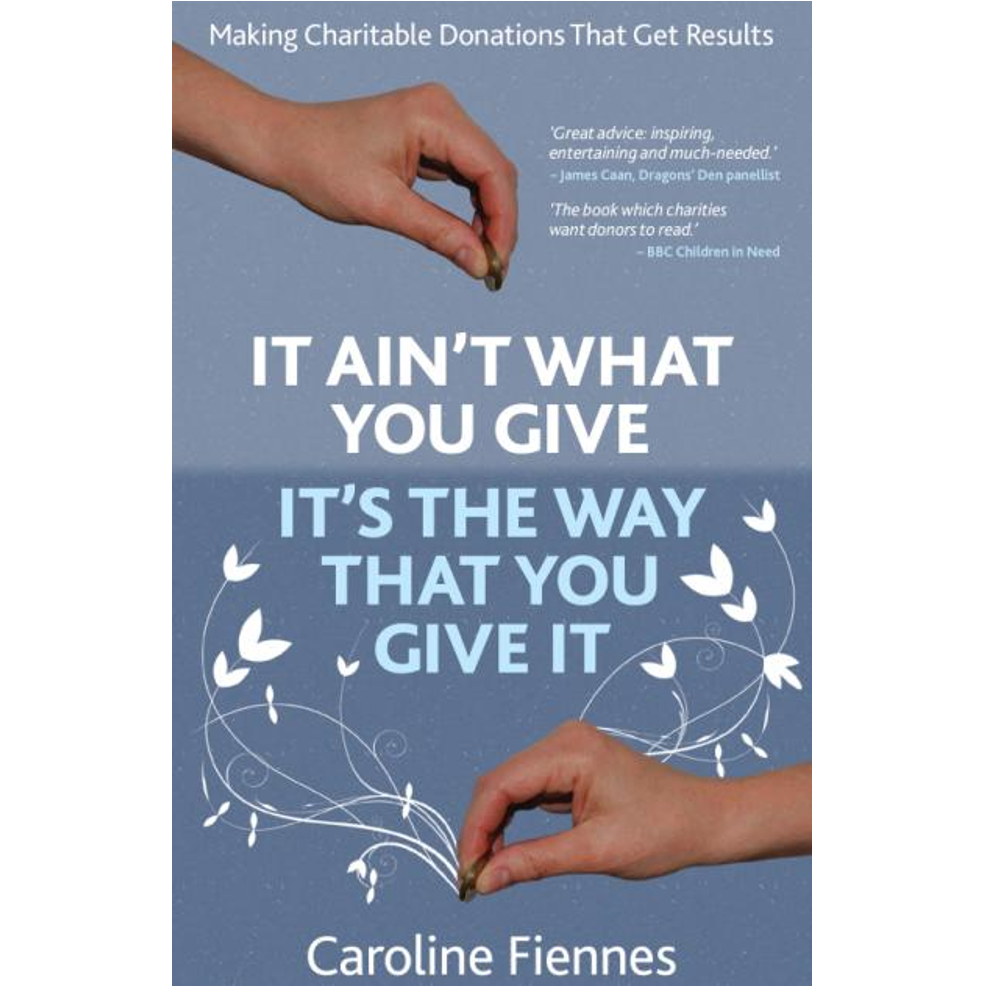Buy the book! www.giving-evidence.com/book

-
Recent Posts
- Measuring children’s safety in organisations: Evaluating the strengths and limitations of currently-used measures
- Why the Fdn Practice Rating doesn’t assess the same foundations each year, and why that’s fine
- How diverse are UK foundations’ staff and boards?
- Surprising churn in the top UK foundations
- Why the system for charities applying to foundations is so expensive, and what can be done about it
- Getting evidence to influence public policy
- The curious relationship between the number of staff and number of trustees in foundations
- Having Too Few Personnel Compromises Foundations’ Performance on Key Issues
- One donor’s fantastic work to encourage use of evidence, and production of more, to fight factory farming
- Reducing the Administrative Burden Placed on UK Charities by UK Donors and Funders
- Letter in The Economist about anti-malarial bednets
- Rating UK foundations on their transparency, accountability and diversity
Categories
- Admin costs (11)
- Analysing giving (8)
- Books (7)
- Corporate philanthropy (6)
- Donor behaviour & giving stats (26)
- Effective giving (58)
- Fundraising (18)
- Great charities (20)
- Impact & evaluation (63)
- Mergers (2)
- meta-research (6)
- Promoting giving (5)
- Tax and governance (7)
- transparency (2)
- Uncategorized (126)
Category Archives: meta-research
What makes a helpful reporting & evaluation system? Learning from an outlier
Funders’ reporting and evaluation systems are rarely loved: they are more often regarded as compliance or ‘policing’. But not so for the Inter-American Foundation apparently: IAF received better feedback from its grantees on its reporting and evaluation system than have … Continue reading →
The Magic Impact Fairy will ensure that your research really changes something
Many charities’ theory of change is: ‘here’s that document you didn’t ask for’ I want to introduce you to someone: the Magic Impact Fairy. Her job is to take all the research that people do and the reports they write, … Continue reading →
How come this foundation’s grantees love its reporting process so much?
Most charities hate the reporting which funders make them do. Notionally a learning process, it’s often just compliance, box-ticking and a dead-weight cost. But not so apparently for the Inter-American Foundation, an independent US government agency which grant-funds citizen-led community … Continue reading →
Deworming: problems under re-analysis
A flawed study on deworming children—and new studies that expose its errors—reveal why activists and philanthropists alike need safeguards. The book Zen and the Art of Motorcycle Maintenance, of all things, offers a critically important message for people who work … Continue reading →
Posted in Effective giving, Great charities, Impact & evaluation, meta-research, transparency
|
Tagged deworming, science, worms
|
Leave a comment
Is grantee / beneficiary feedback a substitute for RCTs?
The short answer is no. At first sight, it seems that randomized controlled trials (RCTs) and Constituent Voice (CV: a good way of gathering feedback from programme beneficiaries or grantees) could substitute for each other because they both seek to … Continue reading →
Non-publication of charities’ research: groundbreaking new project!
This was first published by our friends at Evidence Matters. It’s hard to make evidence-based decisions if much of the evidence is missing, ropey, unclear or you can’t find it. Charities produce masses of evidence about their effectiveness but Giving Evidence … Continue reading →
